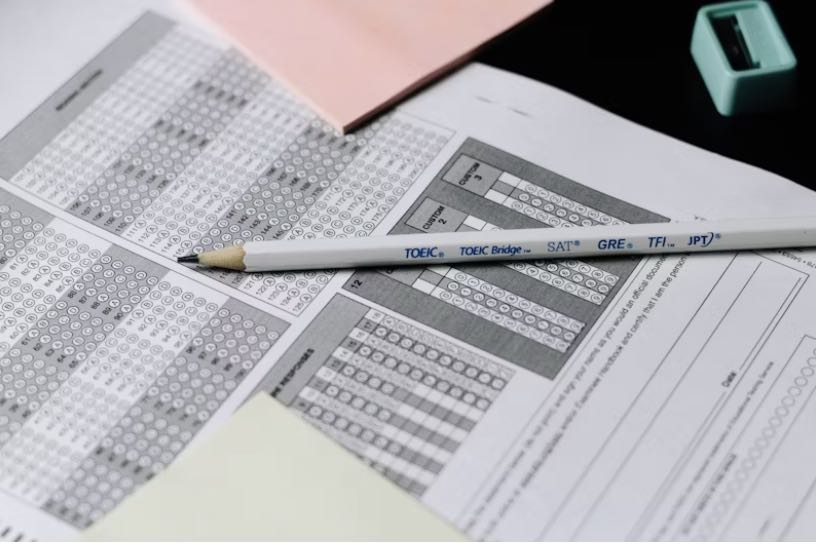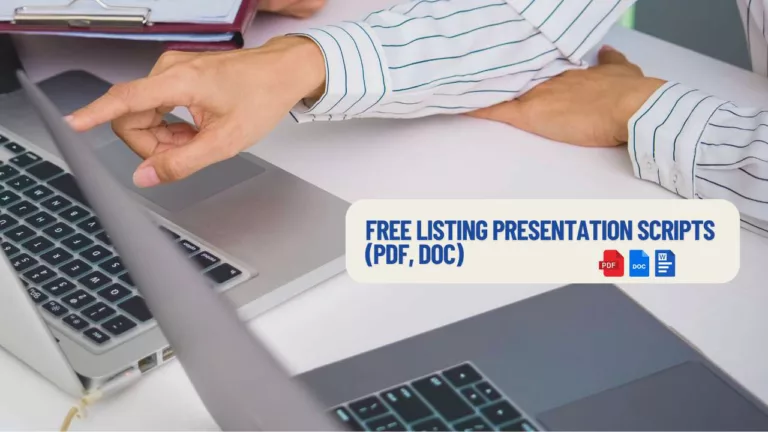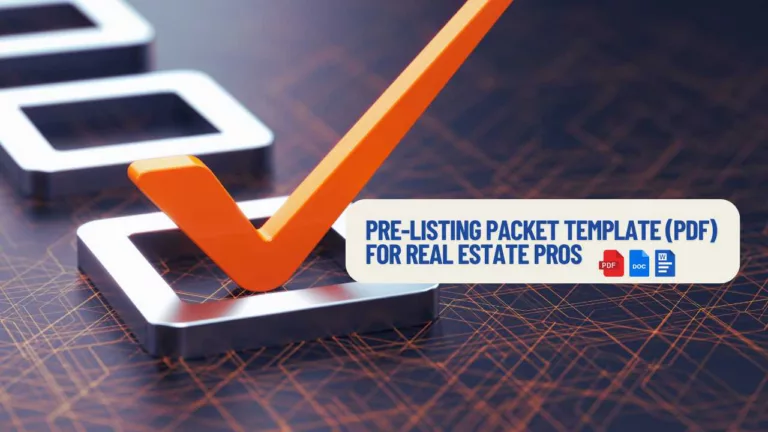
It’s been many years since my first try with the Kansas real estate exam prep, and I remember how tough it felt. I wanted to create a basic practice test that Kansas real estate brokers, agents, and anyone curious about the Kansas real estate world can try. This practice exam covers essential concepts and regulations to help you prepare for the state exam. If you’re trying to determine your license status, are curious about the rules, or just want to feel confident before you sign up with Pearson Vue, then this is a great place to start. Let’s see if you’re ready to handle a real estate transaction. It’s also good to know that the Kansas real estate commission does require ongoing education for license status, so it’ a good idea to stay up to date on things. There are two different portions to the exam, the national portion and the state portion. Make sure you are prepping for the correct one.
Real Estate Quiz
Get Our Free Study Guide for Real Estate Exam Prep
Download Free Study Guide
Preparing for the real estate agent license exam can be a daunting task, but with the right resources and a strategic study plan, you can navigate your way to success.
Real Estate Agent Essentials – Understand the roles and responsibilities of both real estate agents and brokers. Real estate salespersons are typically responsible for helping clients buy or sell real estate, while brokers have additional responsibilities, such as managing transactions and overseeing agents.
Property Basics – Familiarize yourself with various types of property, including real property and personal property. Know how property ownership works, including the rights and responsibilities of the property owner. Learn about property management, property lines, and property taxes.
Real Estate Transactions – Get a good grasp of real estate transactions, which includes understanding the listing agreement, the selling price, and the role of a neutral third party. Learn how an agent represents both the buyer and the seller in different scenarios.
Real Estate Law – Understand the legal aspects of real estate, including real estate law, agency relationships, and probate court. Be aware of state laws that may affect property transactions.
Real Estate Exam Preparation – Use real estate test prep materials and take real estate practice tests to familiarize yourself with the exam format. The exam generally has two parts: the national portion and the state-specific portion, so make sure to prepare for both.
Mortgage Loans – Understand different types of mortgage loans, like conventional loans and adjustable-rate mortgages. Know how to calculate a monthly payment and understand what makes it tax-deductible.
Market Data Approach – Learn about the market data approach, a common method used to estimate the value of a property based on comparable sales.
Title and Ownership – Learn about property title, which is the legal document that proves ownership. Understand the process of transferring title during a sale.
Remember, the key to passing the exam is consistent studying and taking advantage of free practice tests.
Good luck with your real estate agent exam preparation.

Test Taking Advice
Most state licensing agencies rely on examinations to determine a candidate’s qualifications for licensing. These tests aim to measure a candidate’s knowledge of various real estate subjects as part of evaluating their readiness for a successful life in the field. While many states use professional testing services to develop and administer these licensing exams, some have developed their own courses and methods.
The typical state licensing exam uses a multiple-choice format with four options per question, where only one answer is correct. The exam is usually divided into two sections. One part, generally containing 80 to 100 questions, covers national real estate topics, while the second, with 30 to 50 questions, focuses on state-specific content, laws, and practices. Often, people wonder how many questions they need to get right to pass or what the sales price of the exam is. It’s important to connect with the testing materials and expect to dedicate around six months for proper preparation. The exam will touch on subjects such as advertising regulations and financing.
The remainder of this section will provide information and tips to help you successfully complete the licensing examination. Taking the time to prepare will help you score high and increase your chances of passing the first time. Remember to consider which brokerage you may want to work for once you pass.

Preparation for the Real Estate Agent Test
- Learn all you can about the test administered in your state. Examination information can usually be obtained from either the testing service used by the state or the state agency that administers licensing.
- Register for the test date and site location as early as possible because your fill up quickly. preferred test date and site may
- Visit the test site before the test date to locate parking, and determine how long the commute will be to the test site.
- The night before, assemble all items needed for the test. These might
- include identification for access to the site; a watch; any fees required to be paid at the test site; a calculator (test to be sure it is working); extra batteries for the calculator; and pens, pencils, and erasers.
- The evening before the test, quickly review topics you feel are critical or have given you the most trouble and then get to bed early. Do not stay up all night trying to study. You will probably answer more questions wrong if you are sleepy and not mentally alert.

Studying
There is no substitute for commitment and hard work. Plan ahead to invest adequate time in reading, studying, and practicing your testing skills. Spend adequate time studying the definition of key real estate terms. Each unit in this book starts with a list of key terms covered in the unit and highlights them in bold in the text. The glossary is a good place to study the vocabulary of real estate.
Practice test-taking by using the Part Diagnostic Tests in this book, as well as the practice tests in this section. Remember that practice tests are not a substitute for studying. Do not try to memorize the answers because subtle changes in the question you may encounter on the licensing test may change the correct answer. Practice taking tests under conditions similar to those you will be operating under at the licensing exam.

Taking the Test
Arrive at the test site early to avoid rushing and putting extra pressure on yourself. Use the extra time to relax, use the bathroom, and mentally prepare yourself. Listen to the test proctor’s instructions carefully, review the test material given to you, and note if anything is missing. Budget your time and pace yourself in working through the questions. should work as quickly as you can, do not rush through the questions because this increases the risk of careless errors such as hitting a wrong key on your calculator.
Although you questions may be Do not spend too much time on a question the first time through the test. You will not know the answer to every question, and some long or confusing to you. Skip these and return to them after answering the other questions. Take mental breaks to avoid fatigue. Mental fatigue may cause careless mistakes, so if necessary, stop and close your eyes for a minute or two, and then resume the test. Carefully mark your answers. Whether you use a paper answer sheet or a computer, make sure the answers you are entering match the number of the question.
Do not change an answer unless you are very sure it is incorrect, because your first answer is usually the best. Read carefully. You must read each question carefully and completely. Do not skim through the question. Read all the possible choices before making a selection. Watch for key words. Words such as not, must, always, except, and so forth are usually critical to selecting the best answer. When you encounter these terms, circle or highlight them in case you need to return to the question so you won’t miss them.
Find the best answer. Some answers may be at least partially correct, but only one can be the best answer. Eliminate obviously incorrect answers. When reading all the answer choices, cross out those that you are sure are wrong. If you return to the question, you will not waste time considering these answers again. Mark up the test. Usually only the answer sheet is used for grading. Next to the questions write notes, calculations, or question marks for unsure answers; circle or highlight key words or phrases or anything else that will help you analyze the question.
Use all the necessary information given but only the information given. Remember to use all the relevant facts in selecting the answer, but do not start reading facts that are not there into the question. (Some tests may have questions with extraneous facts that are not necessary in selecting the correct answer.) If you finish answering the no other reason than to be in recording your answers, in your questions early, review the questions, sure you did not make careless mistakes computations, and so forth. Very often applicants fail the test by only a few points, and there is no extra credit for finishing early.
Contact Joe. Join Our Newsletter.
Stay informed about the latest trends and tips in real estate by joining our newsletter.



